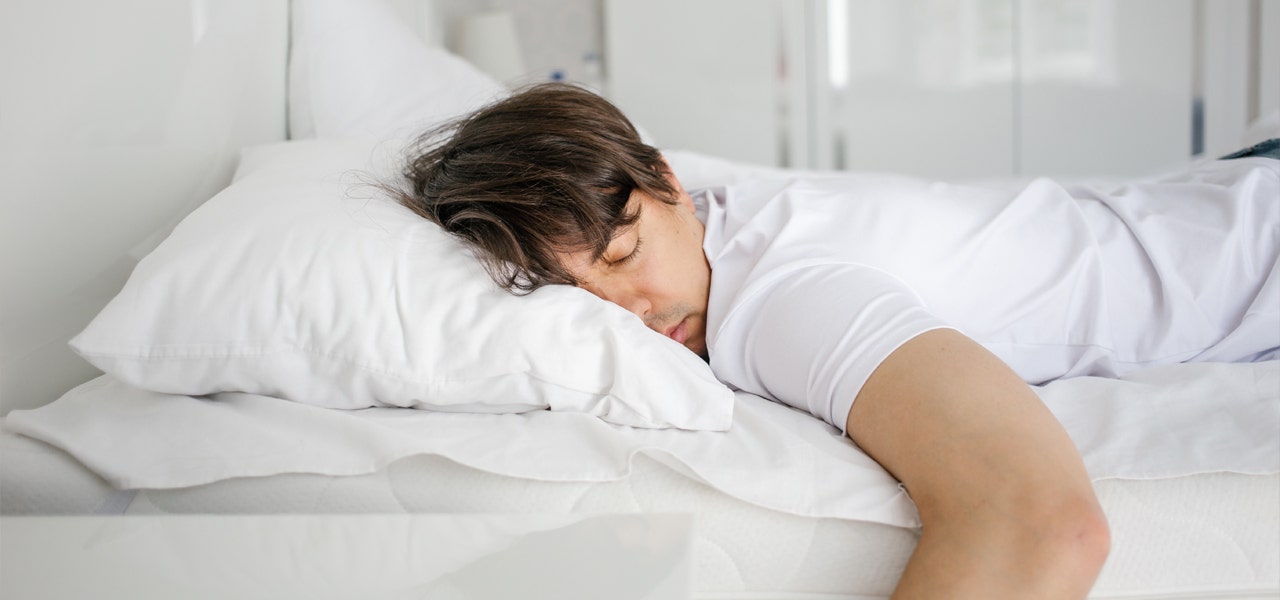You’ve probably heard of your circadian rhythm, the “internal clock” that helps you know when is the best time to sleep and wake up. This body clock is controlled by a small part of your brain that is extra sensitive to light and dark. It affects your hormone production and body temperature, among other functions, and can even impact your mental health.
If this rhythm is so sophisticated, why do so many people have trouble falling asleep? (Seriously, 70% of adults have trouble getting a good night’s sleep at least once a month.) If you’re tired, why not just go to bed?
Unfortunately, knowing when to go to sleep isn’t as obvious as it sounds. Our modern world full of appliances, smart devices and even electric lights can throw off the balance of our natural rhythm and require interventions like sleep medication, melatonin supplementation and more. The more time spent indoors and in front of blue light, the less we can hear that internal body clock telling us when to go to sleep.
But your circadian rhythm is still there, and your brain is doing a variety of things – some more subtle than others – to try to convince you to go to bed. You just have to learn how to listen.
What Happens If You Don’t Go to Sleep When You Should
Important question. Honestly, it isn’t pretty. Sleep is essential to your wellness, and long-term sleep deprivation can cause a whole host of health problems, such as:
- Decreased fertility
- Diabetes
- Obesity
- Depression and anxiety
- High blood pressure
- Heart attack
- Stroke
However, even a few nights of poor sleep can result in increased stress levels, impaired cognitive function, lack of alertness and other troubles. Poor sleep can even lead to dangers like the 6,000 fatal car accidents each year that are caused by tired drivers.
Oh, and it can take up to four days to recover from just one lost hour of sleep, so it’s in your best interest to listen to your brain when it says it’s bedtime.


The Best Time to Sleep Is When You See These 5 Warnings Signs
If you’re wondering when is the best time to sleep and wake up, we’re sorry to say there is no one-size-fits-all magic bedtime. Your ideal sleep schedule depends on a lot of individualized factors like:
- Age
- Overall health
- Work routine
- Diet and other lifestyle factors
However, your brain does try awfully hard to communicate with you about your body’s sleep needs. Here are some signals to look for:
1. You’re Nodding Off
If you can rest your eyes for a moment on the couch and fall asleep instantly, it’s time to go to bed. The period of time it takes you to fall asleep is called sleep latency – and, if it’s less than about five minutes, you are probably suffering from sleep deprivation. If you start nodding off, it’s a sign you need to plan more time for sleep.


2. You’re Zoning Out
Another common sign of fatigue is losing focus or “zoning out.” Maybe you lose your train of thought while having a conversation, or you might not be able to recall what you had for lunch or if you went to the gym already today. This loss of focus means you need to rest up.
3. You’re Craving Carbs
If you crave white refined grain products or sugary sweet treats, your body is jonesing for a quick energy fix. Remember that hormone regulation we mentioned? Sleep deprivation can lead to higher levels of hunger hormones and lower levels of appetite suppression hormones. Try going to bed earlier instead of reaching for a late night snack.
4. You’re Feeling Coole
Body temperature decreases for sleep, sort of like your system is powering down for the night. If you start to feel like bundling up under a cozy blanket on the couch, it may be time to head to your bedroom instead and get some ZZZs.
5. You’re Starting to Wake Back Up
Many people get a second wind around 9:00-9:30 p.m., which is your body’s way of pushing you into a few more hours of wakefulness. While this is helpful once in a while, it’s not something you want to do often (as so many people do). Take note of when you get your second wind, and make that your new bedtime so you don’t have to fight to sleep for hours after your body kicks back into gear.
Have you noticed any of these cues? It may not sound as loud and clear as your mom’s voice did when you were a kid and she told you to come inside and get ready for bed, but your brain and body are definitely giving you the information you need.
Learn more about how you can get good restorative sleep. Of course, finding just the right mattress or pillow can help, too.
 BABY
BABY  KIDS
KIDS  ADULT
ADULT  LEARN
LEARN  STORES
STORES 